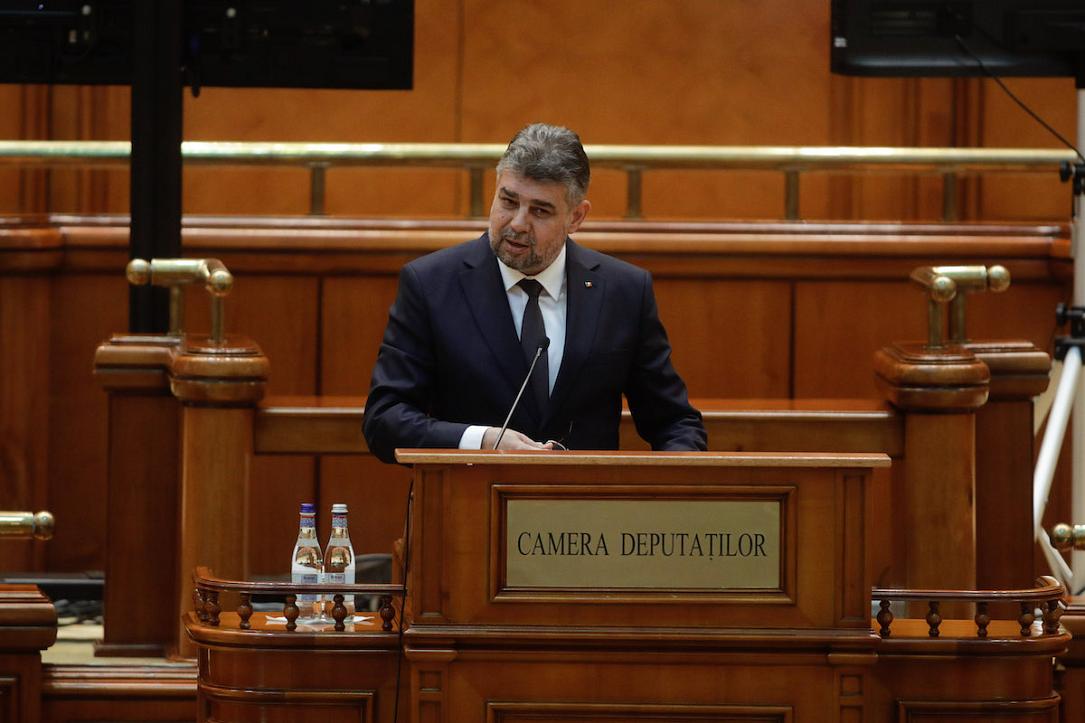Romania’s Parliament ignores all warnings and votes 40% increase in pensions amid battle for votes



Romania’s Parliament voted on Tuesday, September 22, a bill that forces an immediate 40% hike in public pensions, as opposed to a milder 14% increase proposed by the Government.
The decision, which comes just five days ahead of the local elections on September 27 and two months ahead of the December 6 parliamentary elections, highlights the fierce battle for votes between the Social Democrats (PSD), who occasionally hold the majority in the Parliament, and the Liberals (PNL), who run the Government.
The 40% pension hike is likely to push up Romania’s budget deficit to unsustainable levels in the years to come, as the central bank, international financial institutions and economists have been warning since the beginning of this year. Foreign and Romanian investors’ associations have reacted to this decision warning that it will have severe negative effects on the local economy.
Social Democrats push pension hike through Parliament, Liberals protest
A broad majority formed by the Social Democratic Party (PSD) and their traditional allies ALDE and Pro Romania, plus the ethnic Hungarians' party UDMR, passed the budget revision bill, which forces a 40% hike in public pensions.
The Parliament thus overwrote the Government's decision to increase pensions by 14% starting September 1 and returned to the 40% hike included in the pension law last year.
The ruling Liberal Party PNL argued vocally and voted against the costly amendments proposed by PSD, but was backed only by the MPs of the reformist party Save Romania Union (USR).
Prime minister Ludovic Orban made clear that PNL and the Government would refer the budget revision bill to the Constitutional Court. However, the case is rather cumbersome: by the budget revision bill, the MPs leave untouched the Pension Law - a law that has been promulgated already and is in force. Neither the Government nor the Liberals, nor even President Klaus Iohannis can refer the Pension Law to the Constitutional Court. What they can do is challenging the budget revision bill, but it remains unclear on what grounds.
Prime minister Ludovic Orban criticized the Parliament's decision in harsh terms, calling the Social Democrats "economic killers." "Any increase in spending caused by the economic criminals from PSD does nothing but lead Romania to insolvency. Romania risks downgrading by the rating agencies, which will increase the cost of financing, not only public funding but also for all companies and individuals in Romania. Loans will be more expensive and harder to access," said Orban. He argued that the Government has no sources to finance such an increase while the budget deficit was already projected to reach 6.7% of GDP this year.
Meanwhile, PSD leader and speaker of the Deputies Chamber Marcel Ciolacu (opening picture) claims that the money for increasing pensions by 40% exists, and the budget deficit "won't go up one RON." He suggested that the Liberals were saving the money to finance their electoral campaigns. "We moved the money back to the people," Ciolacu wrote on Facebook. The whole dispute comes less than five days ahead of the local elections on September 27.
Pension increase by 40% will push budget deficit over 11% in 2021
The 40% in public pensions will lead to a public deficit in excess of 11% of GDP in 2021, according to Romania's National Bank's calculations.
"There is a major systemic risk if the public sector is undermined by a large increase in permanent spending, with a budget deficit that can reach over 11% of GDP in 2021 if there is an increase in the pension point by 40% this year," reads BNR's quarterly report on Romania's euro adoption, quoted by Agerpres.
The Fiscal Council, central bank, international financial institutions and local economists have all been warning since the beginning of this year that a 40% increase in public pensions would be unsustainable and would have significant negative effects on the local economy.
The highest risk is that rating agencies, which already have a negative perspective on Romania’s investment grade rating, will downgrade the country’s rating to junk. This would lead to higher financing costs for the state, companies and population and cripple economic recovery after the COVID-19 pandemic.
“These changes will have an impact on Romania's ability to access significant amounts of European funds and could trigger changes in the ratings of international agencies. One of the major problems with such a large budget deficit (11% of GDP as projected by BNR – e.n.) is the difficulty or even impossibility of financing it on the financial markets. This decision could trigger downgrade actions from rating agencies (hence further increasing the cost of public debt with a ripple effect of the whole Romanian economy) in the absence of a credible repayment strategy. Consequently, Romania's competitiveness will be weakened from within and regaining the advantage lost in this way will bring additional costs in the medium term,” the Foreign Investors Council (FIC) said in a press release.
“Despite all the warnings about the fragile macroeconomic situation exacerbated by the slowdown in the global economy and the domestic financial effort in the fight against COVID-19, the adoption of such unsustainable decisions is a dangerous slippage that burdens the working population and future generations, and deepens social tensions. It is an unprecedented situation and a confusing message that Romania sends to the investment community, risking a downgrade of the country rating in the same week in which the Romanian capital market was promoted to emerging market,” said AmCham Romania.
“Such massive increases in the conditions of an already overstretched deficit are putting too much pressure on public finances, the country's ability to borrow and the exchange rate, all of which are important for the business environment. The increased volatility that such decisions bring during election periods is counterproductive for the economic environment,” reads a statement by the Concordia Employers’ Federation.
andrei@romania-insider.com
(Photo source: Inquam Photos / George Calin)